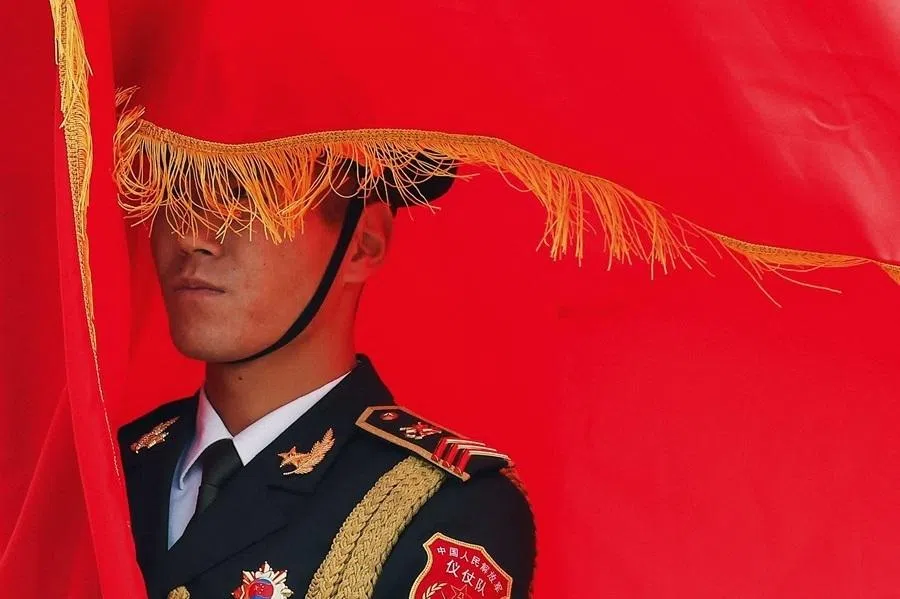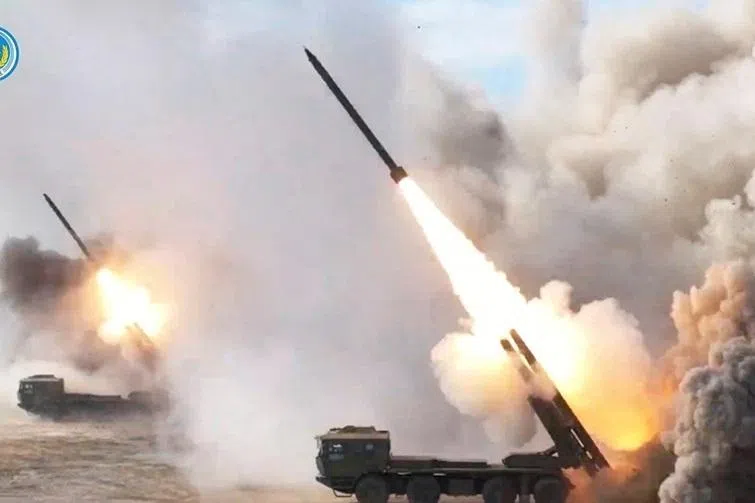Claim of US bioweapons operation in Ukraine pushes China closer towards Russia
With the Russian invasion of Ukraine just about two weeks old, a war of words has broken out between the US and China over the alleged presence of US biowarfare research facilities in Ukraine. China seems to be throwing in its lot in with Russia, calling for the US to come clean and to allow multilateral inspections. Zaobao correspondent Edwin Ong analyses the recent developments, which is reminiscent of the bickering that ensued when Wuhan lab-leak accusations were heaped on China two years ago.

China and the US have recently been at odds over the war in Ukraine and have deepened their grievances, setting the stage for another downturn in bilateral relations.
Since the war broke out, the New York Times (NYT) has twice quoted unnamed officials revealing that over the past three months, the US has repeatedly urged China to tell Russia not to invade Ukraine but was rejected by the Chinese. Not only that, China had prior knowledge of Russia's war plans and intentions, and had told Russia in early February not to act before the end of the Winter Olympics in Beijing.
Urging China to choose sides
China's foreign ministry has firmly objected to these claims, stating that the US is concocting fake news to smear China. On 3 March, Chinese foreign ministry spokesperson Wang Wenbin refuted the NYT report as "pure fake news", adding that "such practice of diverting attention and blame-shifting is despicable". The deepening distrust between China and the US is making it difficult for both sides to reach a consensus on the fighting in Ukraine.
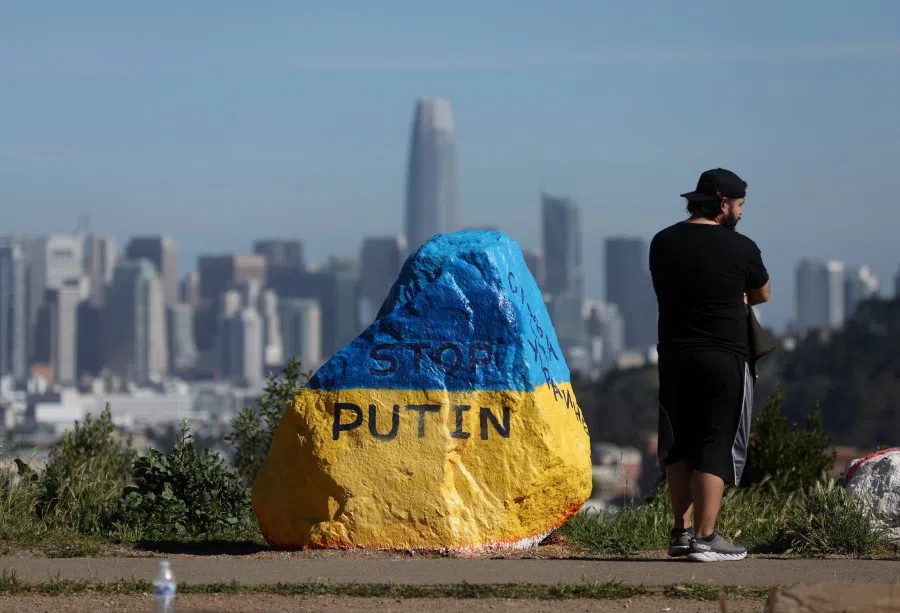
Nonetheless, the US still hopes that China will join the international ranks to denounce Russia and impose sanctions in coordination with the West. Hence, it has ramped up the pressure on China urging it to choose sides.
On its part, China insists on remaining an outsider and refuses to be dragged into the situation. This has led to fractures in China-Russia relations, despite the two nations' recent declaration that their friendship has "no limits". While China is attempting to project a sense of balance in the Ukraine war, it seems to be tilting towards Russia.
Accusations of biowarfare research
This week, Russia claimed that they have discovered a US biowarfare programme in Ukraine. Chinese officials seem to have seized the opportunity to turn the tables on the US. Echoing the Russians, they called for the US to make "full clarifications" and allow "multilateral inspections".
This is reminiscent of the back-and-forth between China and the US over the origins of the coronavirus two years ago. At the time, the US said that the virus might have originated from the Wuhan Institute of Virology, while China said a biolab in Fort Detrick was the source of the virus, which was brought to Wuhan in October 2019 by US troops participating in the Military World Games. This unverified theory was posted on Twitter by Chinese foreign ministry spokesperson Zhao Lijian in March 2020, sparking off some heated exchanges.
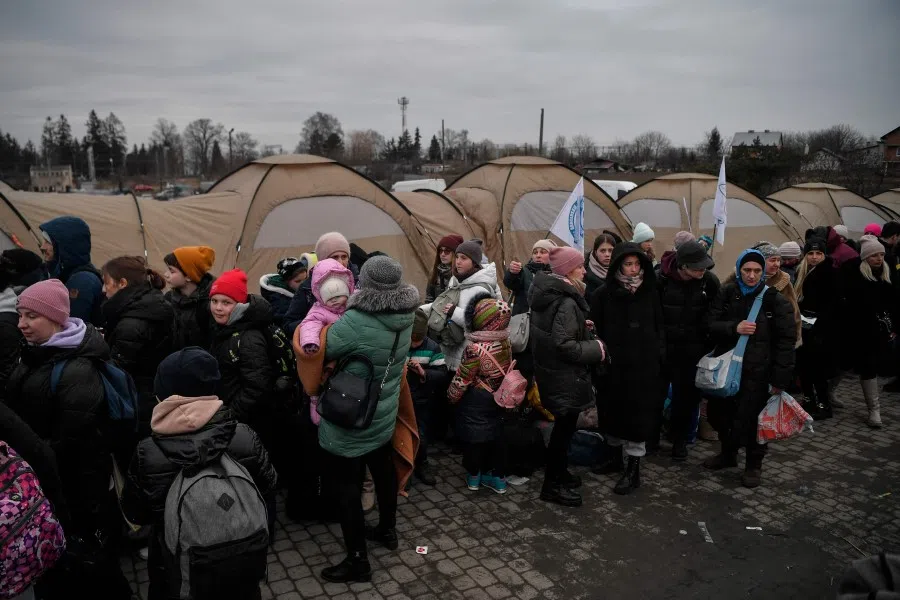
Now, more than two weeks into the Ukraine war, talks are at a deadlock. On 6 March, Russia's Ministry of Defence accused the US of carrying out illegal biowarfare research in Ukraine on lethal diseases including the plague.
Russian news agency TASS quoted Russian defence ministry spokesperson Igor Konashenkov saying that Russia had uncovered evidence of the alleged biowarfare programme sponsored by the US Department of Defense (DOD). Russia had documents proving that the Ukrainian health ministry had ordered the destruction of samples of plague, cholera, anthrax and other pathogens on 24 February, when the war broke out.
Russian foreign ministry spokesperson Maria Zakharova said on 8 March that the urgent destruction of dangerous pathogens stored in Ukraine's US-funded laboratories was to hide evidence that would expose the US and Ukraine of violating the United Nations Biological Weapons Convention.
A tactic to shift the blame?
In response, the West questioned if Russia was spreading conspiracy theories. On 8 March, the UK Ministry of Defence tweeted, "These narratives are long standing but are currently likely being amplified as part of a retrospective justification for Russia's invasion of Ukraine."
That same day, Agence France-Presse quoted Washington-based think tank Atlantic Council as saying that Russia is attempting to justify its invasion of Ukraine by accusing Ukraine of provoking Russia by developing dirty bombs and biological weapons.
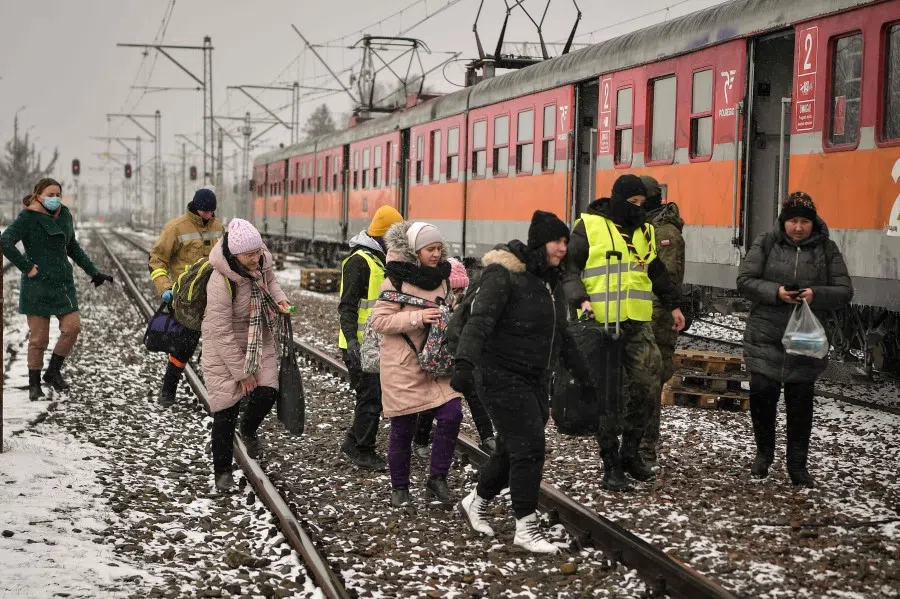
Bloomberg pointed out on 9 March that, since 1991, the US DOD has cooperated with former satellites of the Soviet Union, including Ukraine, to "secure and take apart weapons of mass destruction that have been left behind". A treaty was also signed between the US DOD and Ukraine's health ministry in 2005 "to prevent any proliferation of pathogens in facilities in Kyiv, Lviv, Odesa and elsewhere that could be used in biological weapons".
US under secretary of state Victoria Nuland testified before the Senate Foreign Relations Committee on 8 March confirming that Ukraine has "biological research facilities". She said that the US is working with Ukraine to "prevent any of those research materials from falling into the hands of Russian forces".
By pursuing Russia's accusations against the US and Ukraine, China can not only distract public attention and redirect some pressure to the US but can also highlight China and Russia's commitment in strengthening their strategic cooperation.
During a press conference on 8 March, Zhao echoed Russia's remarks and claimed that the US DOD has "absolute control" over all biolabs and other related facilities in Ukraine. He said, "All dangerous pathogens in Ukraine must be stored in these labs and all research activities are led by the US side."
Zhao urged the US to "disclose specific information as soon as possible", including the type of viruses stored and the research conducted. He also alleged that the US "conducted many biological military activities at the Fort Detrick base at home".

China is clearly angered by the US's repeated calls for it to help avert war. By pursuing Russia's accusations against the US and Ukraine, China can not only distract public attention and redirect some pressure to the US but can also highlight China and Russia's commitment in strengthening their strategic cooperation.
On 9 March, Zhao also criticised the US for "disseminating disinformation about China on the Ukraine issue". He said that the US is attempting to "shift blame, stoke confrontation and profit from the issue", which is a "despicable and malicious" practice.
Since China and the US were unable to band together in the fight against the pandemic, it will be just as difficult for them to unite and end the war in Ukraine together as well.
By criticising China's position on Ukraine, Zhao said that the US is actually trying to "seek space for the plot of simultaneously suppressing China and Russia" to maintain its hegemony.
Prior to this, observers had hoped that war in Ukraine could provide the impetus for China-US cooperation. But the recent developments have proven that history could be repeating itself. Since China and the US were unable to band together in the fight against the pandemic, it will be just as difficult for them to unite and end the war in Ukraine together as well. Will it be wishful thinking to hope that major powers will take action and provide humanitarian assistance to Ukrainian civilians who are in turmoil, instead of spending their energy on a war of words?
Related: Did China miscalculate the Ukraine war? | China's tricky position on the Russia-Ukraine war | Will China be emboldened by Russia's invasion of Ukraine? | Can China benefit as a bystander in the Russia-Ukraine crisis? | A divided America is losing its footing in the Cold War with China | Anti-American poem sparks fierce debates in China



![[Big read] When the Arctic opens, what happens to Singapore?](https://cassette.sphdigital.com.sg/image/thinkchina/da65edebca34645c711c55e83e9877109b3c53847ebb1305573974651df1d13a)
